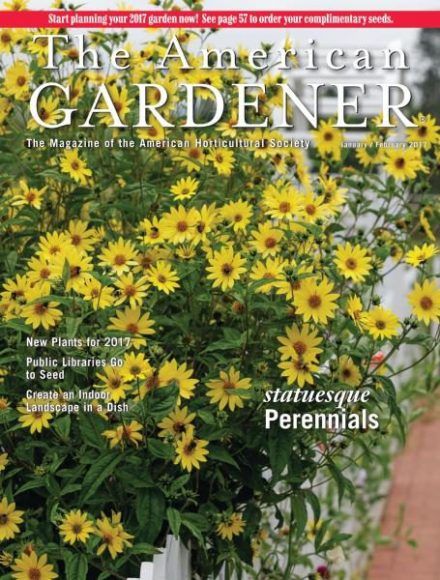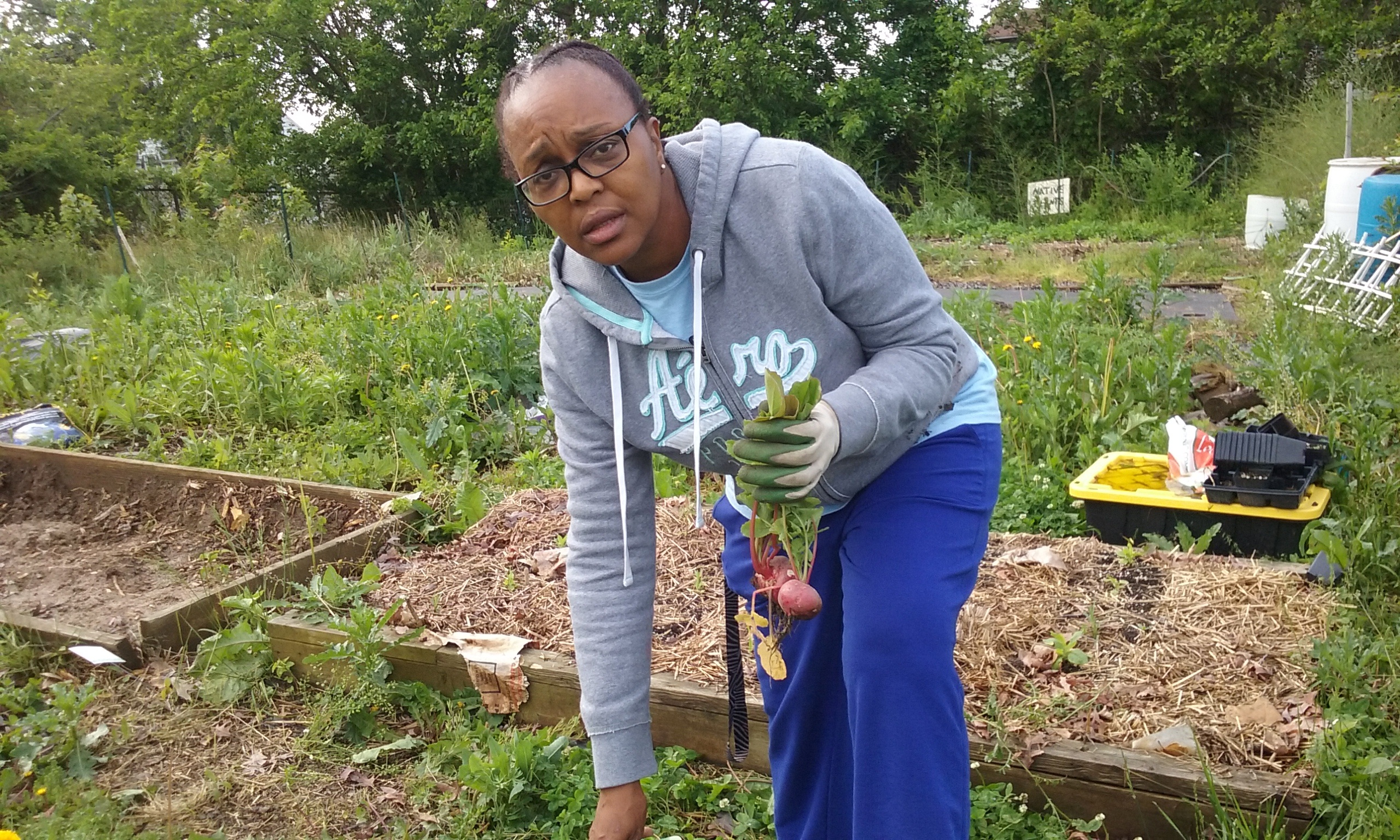American Gardener Magazine – January/February 2017
By Lynn Brinkley
Making an investment in the soil is essential for a thriving garden. This is especially true in urban areas, where space is already at a premium, and in some sites, soil is contaminated with lead or other toxins. There’s also an increasing need in urban areas to handle organic waste onsite rather than transport it to ever more distant landfills. Several cities are successfully addressing these issues by training volunteers to become master composters.
Community Composters
An inspiring example is the Neighborhood Soil Rebuilders (NSR), a composter training program devised in 2014 by the Institute for Local Self-Reliance (ILSR), based in Washington, D.C. in partnership with the Maryland-based ECO City Farms, ILSR promotes small-scale composting as a way to make waste into a resource and to keep that resource within communities producing it. “We are using compost to turn food deserts into oases of green. We’re choosing to feed people and our soils over landfills and incinerators” says Margaret Morgan-Hubbard, CEO of ECO City Farms.
Of course, making all this happen requires a certain amount of know-how. All sorts of educational entities from Extension services to nonprofit organizations and local government agencies offer compost training programs, of course. However, most of these programs “don’t emphasize the art and science of hot composting at the community-scale level,” explains Linda Bilsens, NSR Project Manager.
The ILSR developed NSR with this in mind, so it requires its participants to develop a “capstone” project to implement in their communities and contribute a number of volunteer hours related to composting, in addition to completing classroom lessons and field work. graduates can then participate in an advanced composter apprentice- ship to become trainers who can “engage youth, gardeners, and other members of the community in the act of cycling food waste into a valuable soil amendment,” adds Bilsens. The NSR program is designed to be replicable anywhere, and so far has been successfully implemented in Lincoln, Nebraska, and Atlanta, Georgia.
Getting Involved
Urban dwellers looking to get involved in community com- posting efforts will likely have various options (see “Resources,” below). To ensure best results, Bilsens notes that training programs should emphasize learning which systems are best for which sites, the details of each stage in the composting process (from quantifying raw material inputs to quality testing the final product), and best practices to avoid common problems such as odors. Such programs often are offered in early spring, so there’s no better time than the present to get started.
Learning To Do It Yourself
The controlled decomposition of organic waste seems an unexpected avenue for achieving lofty goals such as mitigating climate change, reducing one of the largest contributors to the waste stream, getting young people to care about our fragile soils, creating jobs, and building community spirit. Yet Bilsens contends that getting more people to compost can play a vital role in making progress on all of these issues. “To some people, com- posting seems silly,” says Bilsens, “but once you start doing it and you actually see that you can create something while at the same time helping address a number of other big problems we face, it’s pretty inspiring.”
…





